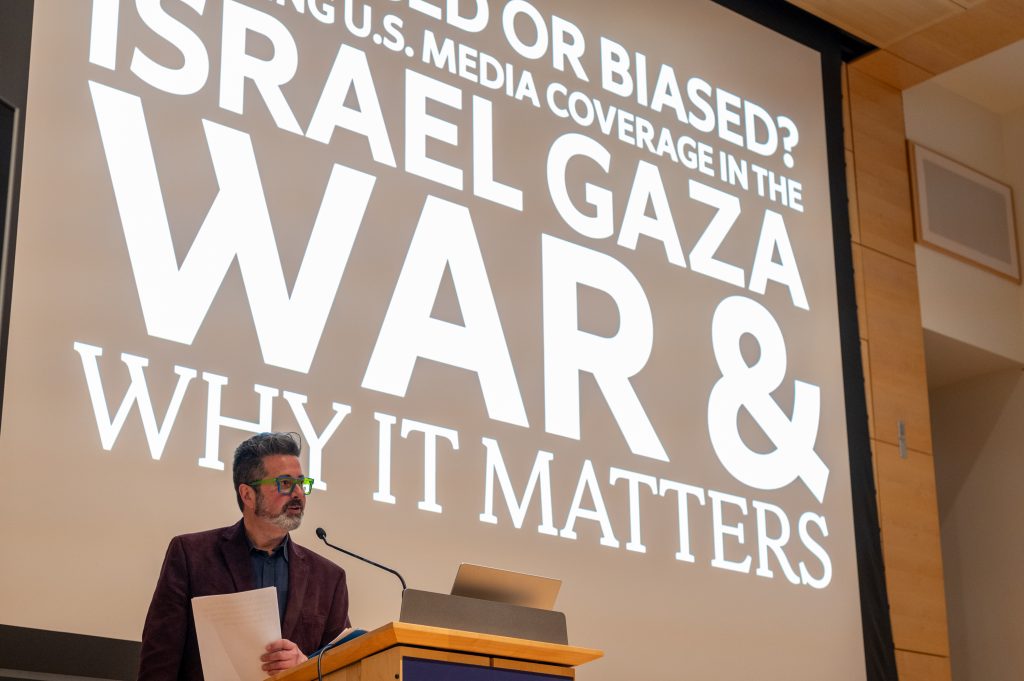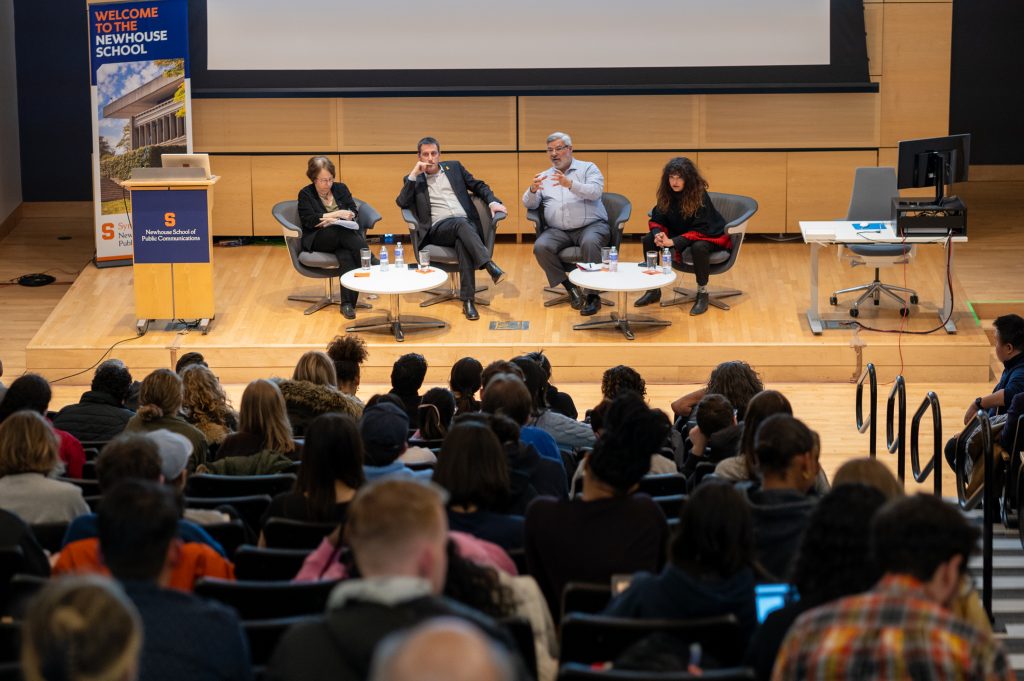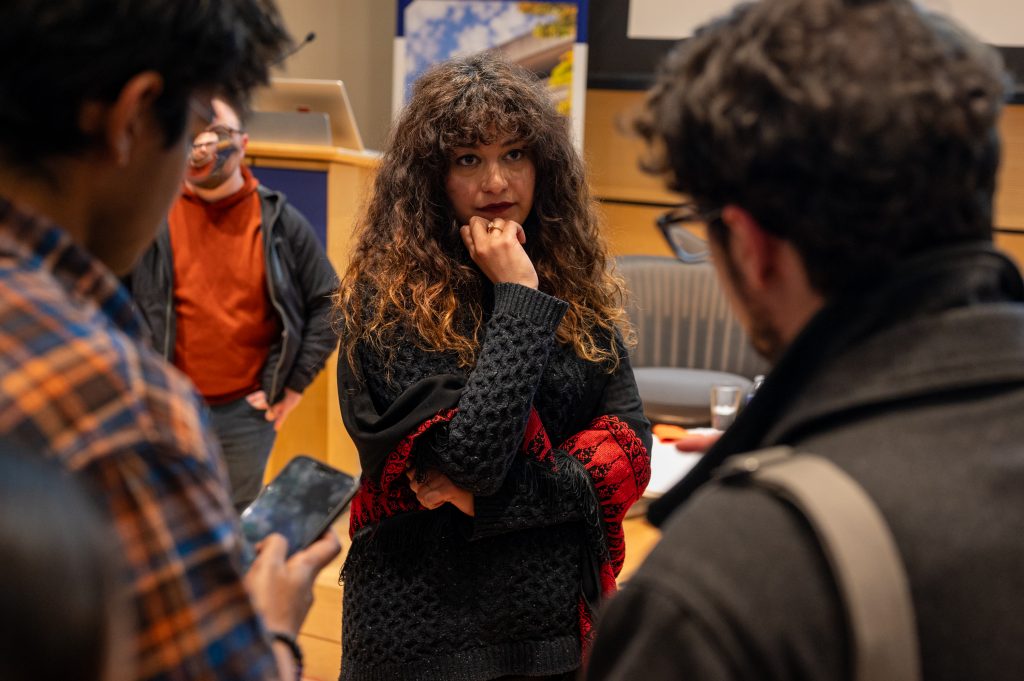SU hosts panel addressing Israel-Hamas war media coverage
SU hosts panel on Israel-Hamas War reporting
The panel of Palestinian, Israeli and American journalists discuss news reporting’s impacts on identity and bias.

With the Israel-Hamas war raging on, the Syracuse University community recently engaged in a lengthy and sometimes intense discussion about how news coverage has shaped people’s understanding of and positions on the conflict.
The Newhouse School Center for Global Engagement’s March 21 panel event titled, “Balanced or biased? Assessing U.S. media coverage of the Israel-Gaza war, and why it matters” drew more than 100 attendees to the Joyce Hergenhan Auditorium for a panel of international journalists and experts.
“Sit down and tell me what you want us to talk about — not a debate or argument,” public policy fellow Rami Khouri said. “You just want to hear everyone’s views and let them hear each other’s views.
“If the university can’t do that, nobody can. It is the job of the university.”
Khouri joined Israeli political reporter Barak Ravid and Palestinian-American photojournalist Kholood Eid for the two-hour panel moderated by Philadelphia Inquirer columnist Trudy Rubins.
Ravid said he considered the reporting he’s seen from the American press to be “pretty good” in the five months since Hamas’ Oct. 7 attack on Israel that sparked the full-blown war.
“I think the coverage was as much as possible because there are objective difficulties as you know,” Ravid said.
As for the issue of media bias, Rubins shared her own experience visiting Israel where there was little coverage of the West Bank, part of the Palestinian territories.
“In actual fact, the West Bank has been an enormous story,” Rubins said. “But because it was a Palestinian issue, it seemed to be off the table.”

As the discussion unfolded, identity politics became another key topic. Ravid was asked about his Israeli background and if he attempts to compartmentalize that part of his identity.
“I don’t think that matters and I don’t think we can compartmentalize,” Ravid said regarding coverage. “What matters is that it’s new, it’s interesting, it’s fair, it’s important and it’s honest.”
Eid recalled producing an opinionated photo story that became a point of contention with editors who deemed it non-punishable.
Eid attributed her story’s rejection to identity politics adding that from a young age, she was aware her Palestinian identity was politicized.
“There is bias and maybe I would say maybe part of it is that people like me are not being hired right now,” Eid said.

First-year Newhouse student Gabriela Castaneda Manuel said she could “feel the emotion” from Eid as she talked about fighting with her editors to publish her story.
“It felt like they would stop her because they wanted it more to be reasoning but you have to have the emotion,” Castaneda Manuel said.
Eid said she noticed the women of color attending the event and was approached by several after the panel ended.
“When they came up to me afterward, I thanked them because I felt them watching and I felt seen,” she said.
Khouri, who is a Newhouse alum, said he encouraged the school to organize similar efforts during which students could freely talk about important topics.
“The event was a very good beginning of a process that should continue with more events with people having discussions,” Khouri said. “Newhouse should take the lead internationally and globally on quality, professional, national coverage of the situation.”
Center for Global Engagement director Ken Harper said conversations like the panel offered are a crucial part of a journalism education.
“There is a tremendous need for more quality reporting in the United States, Israel and the world,” Harper said. “Newhouse is hosting this event in its mission to teach student communicators and also to communicate constructively the public’s need for quality journalism.”
